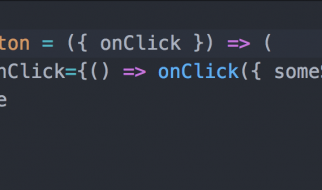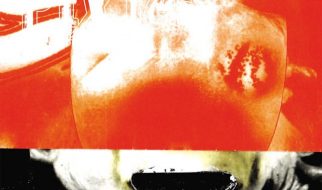This is just a post based on interest. For many years now I have been practicing to speak with a Scottish accent, not for any reason in particular. I simply take an interest in the area, the culture, food, etc. The history is also rather interesting, Celtic and Gaelic influences. I have made another post on accent practice in general. But this one is purely based on the Scottish accent and varieties.
The accent itself involves mouth movements and sounds reminiscent of Scottish Gaelic, and other influences. Some accents are really broad, while others are general, or faint. A funny story. Over time my accent went from really bad, to somewhat convincing in a way. I say this because nobody in Scotland questions me when my accent comes out there. And it has done so. However I?m not learning the accent just to take the mick, and I suggest you don?t either. Also there?s no one Scottish accent. There are plenty of Scottish accents. Edinburgh and Glasgow have their own varieties. Some are regional, such as West Central which is the area around Airdrie and Loch Lomond but not Glasgow itself. Lothian accents are spoken to the east, and up north are the Highland varieties. I?m just going to focus on a general Scottish accent when I talk about the sounds and movements.
VOWELS
The ooh sound
The ooh sound in Scottish involves a narrow gap in the mouth, which is wider in the general RP sound in England. This means that foot in RP becomes fooht in Scottish. Should becomes shoohd and pull becomes poohl. An example sentence:
?We could pull the hood off, should we??
becomes:
?we coohd poohl the hoohd off, shoohd we??
The eh sound
The eh sound Scottish involves a flattening and elongating and it becomes almost like an ?ee? sound. So the word yet in RP becomes yieht. Settle becomes siehttle and interest becomes interiehst. When pronouncing these, don?t go full on, but try to make a subtle ieh sound by combining the i and eh sounds together so that it sounds like ?ear?. They should sound very tight. An example sentence:
?Meh, said Ed, deadheading the red roses.?
becomes:
?Mieh, siehd Iehd, diehdhiehding the riehd roses.?
The oh sound
The oh sound in Scottish involves elongation, so it sounds more like an ?or? sound. This means that the word Scottish in RP becomes Scorttish. The word cloth becomes clorth and robot into robort. An example sentence:
?Stop the hotchpotch robot hotpot.?
becomes:
?Storp the horchporch robort hortport.?
The i sound
This is a very sweet sound in Scottish, but very distinct and noticeable. The mouth actually widens so that i sounds more like an a. An example is with the word price in RP becoming more like prace in Scottish. Kite becomes kate and alright becomes alraght. An example sentence:
?Simon?s hind legs fine till nine.?
becomes:
?Samon?s hand legs fane till nane.?
The o sound
This sound in Scottish is much flatter than in RP. It is more like an or sound similar to the oh sound, but much more prominent. Goat becomes gort, know becomes knor and so becomes sor. An example sentence.
?I don?t know, Owen only opens donuts.?
becomes:
?I dorn?t knor, Orwen ornly orpens dornuts.?
The ow sound
In Scottish, the ow sound narrows and changes from a diphthong to a monophthong or pure vowel. This makes it so that words such as couch becomes cooch, and now becomes noo. An example sentence.
?The found sounds sound astounding.?
becomes:
?The foond soonds soond astoonding.?
The ay sound
Similar to most Scottish vowel sounds, this one also narrows in the mouth and becomes more like a diphthong. This makes it so the word lazy becomes leazy and the word made becomes mead. Don?t confuse this with a Geordie or Northern UK accent though, in which this sound is far more distinct. In Scottish it is subtle. An example sentence:
?Pastry cases taste great.?
becomes:
?Pearstry cearses tearst greart.?
The ah sound
The ah sound has a slight subtle change in Scottish, but very very subtle. It turns the word clan into clarn, and the word back into barck. I can?t stress enough how sutble this sound should be though. It should still sound close to an ah sound.
The ih sound
The ih sound in Scottish has a rather noticeable change, and the mouth will widen and open. The word if becomes ehf and the word fifth becomes fehfh. The word Scottish as mentioned above in the oh sound actually becomes Scortehsh. It was just easier to get one sound down first.
?It was fifteen minutes?
becomes
?Eht was fehfteen mehnutes.?
CONSONANTS
The r sound
This is a difficult sound to master in the Scottish accent, for those who do not know how to roll their r?s like in European accents and languages like Spanish, Russian and French. But luckily, in Scotland the r is tapped rather than rolled and is thus non rhotic. The way I try to do it is to have a sort of ?l? sound in the back of the mouth and then give it a bit of a tap. Some words to practice are ?Murray?, ?sparse? and ?aware?. After that, move on to sounds like ?truck?, ?bring? and ?umbrella?
The l sound
The l in Scottish is a dark sound in all words, rather than a clear and dark l as found in RP and other English accents. It?s hard to demonstrate this without voice but if you pronounce the ?l? sound as luh, you clearly have the ?l? come out the front of your mouth which isn?t really heard in Scottish. The dark l sound is heard from the back, and words like ?pool? and ?call? are a good example in RP English. You turn the sound into a sort of ?w? sound so that all becomes aw and pool becomes poow.
OTHER POINTS TO NOTE
Words with a final unstressed syllable in RP often have it stressed in Scottish. The word advertise will sound more like adverTISE with an emphasis on the final syllable.
Scottish speakers tend to have a wider pitch range than in RP, especially at the ends of sentences.
We don?t often hear glottal stops in Scottish. The t?s are always often pronounced, even when speaking quite fast.
Scottish tone is different amongst the varieties of accents in Scotland. Edinburgh is softer sounding than Glasgow for instance.
Scotland accents contain Gaelic and Celtic influence. Gaelic is a language, whereas Scottish English is an accent. So words such as ?wee? and ?didnae? are typically associated with the Scots. The word ?wee? is very common. We start to get fancy with phrases such as ?Yer bums oot the windae? which means you?re talking nonsense. Sounding like a true Scot, then isn?t just about learning tone and technical mouth sounds. You?ll have to pick up some Scottish slang. And it gets more specific as you go into cities such as Glasgow. The term ?mad wi it? in Glasgow means intoxicated/drunk, while the term ?Glesca? means Glasgow itself. You can use this information to identify a Glaswegian from a general Scot.
The ?ch? sound in loch is pronounced similar to an ?ich? sound in German.
How to practice
Start off as bold as possible to ensure you understand the different sounds and features correctly. Do this practice to yourself, and eventually you will soften the Scottish sounds and will start to speak more naturally in that accent. Please don?t do a ?Shrek? quote like ?OGRES HAVE LAYERS? in a deep bold tone because you?ll just sound ridiculous. It?s probably the worst way to practice a Scottish accent, given that the actor for Shrek isn?t Scottish.
Finally, recognise this is going to take some time. You?ll have to start off slowly and saying sentences won?t come naturally in the accent until much later.

